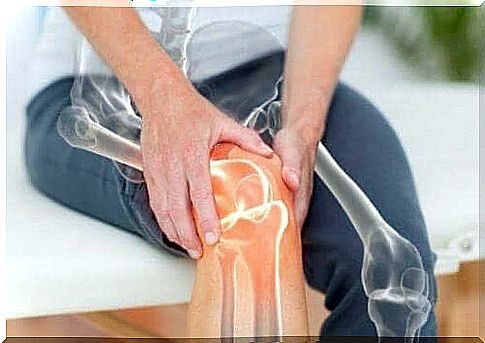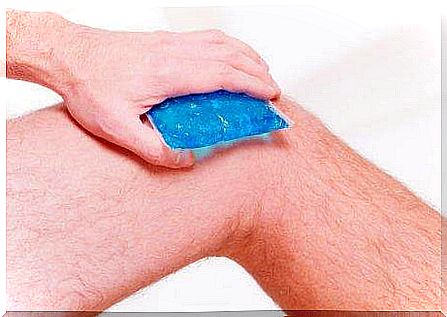Habits That Help In The Treatment Of Degenerative Arthritis

Degenerative arthritis, especially osteoarthritis, is a chronic disease that compromises joint health. It often affects people over the age of 60, but it can manifest in adults of all ages. Although there is no cure for it, there are some habits that can prevent it from getting worse.
How should osteoarthritis be treated?
Fortunately, some significant progress has been made in the treatment of this disease. Because of this, in addition to medications such as painkillers, specialists have several other recommendations for managing the symptoms.
Discover some of them here!
Habits that help treat degenerative arthritis
Osteoarthritis develops due to progressive joint damage. This degradation can occur over time, either due to aging or previous damage. It causes symptoms such as pain, stiffness and reduced movement.
Although the severity may vary from patient to patient, it will generally affect their quality of life. In terms of treatment, it aims to reduce disease progression and manage symptoms.
1. Physical exercise

Exercise promotes physical well-being in general, but especially in the joints. Thus, it improves our mobility.
The pain that comes with osteoarthritis often reduces our ability to perform certain exercises. However, it is not recommended to have a sedentary lifestyle. Getting regular exercise with low intensity strengthens the muscles around the joints to prevent complications in the disease.
About. 20 to 30 minutes of daily physical activity helps relieve stiffness and reduce the risk of cases of severe pain. You should do activities such as walking, swimming or stretching. You can also try yoga or tai chi.
2. Weight loss
Being overweight or obese can accelerate joint breakdown in patients with degenerative arthritis. In fact, both are considered possible triggers of the disease. Because of this, those who are overweight should aim to lose a few pounds.
A healthy weight puts less pressure on the joints, and will thus help keep the pain at bay. In addition, it will reduce the risk of other health complications such as cardiovascular disease or metabolic syndrome.
3. A good night’s sleep and degenerative arthritis

Sleep problems can end up aggravating the ailments and reducing our quality of life.
Sometimes the pain that osteoarthritis causes can also affect our sleep quality. Despite this, it is important to try to get a good night’s sleep every night, as rest is very important in relieving arthritis.
If you have trouble sleeping, try the following:
- Make sure your bedroom is a comfortable place to sleep.
- Avoid working in the bedroom.
- Stay away from distracting devices such as computers, cell phones or tablets before going to bed.
- Eat foods that promote relaxation and sleep.
- Eat low-calorie healthy dinners.
- Drink relaxing infusions such as a tea of passion flower or horseradish root.
4. Drink natural tea
It is important to know that. However, drinking them can help in the treatment of degenerative arthritis .
Some teas that are recommended because of their anti-inflammatory properties are ginger, green tea and turmeric.
5. Heat and cold therapy for degenerative arthritis

This therapy is an effective way to control the inflammatory process of the joints.
Heat helps to open the blood vessels , thus improving circulation. As a result, the transport of nutrients to the affected tissue is also improved. The heat also provides a calming effect that reduces stiffness.
On the other hand, the application of ice will tighten the blood vessels and reduce swelling and pain. Because of this, it is a good alternative to complement the heat properties.
- To begin, apply heat with warm water or a heating pad. You can also moisten a towel with warm water (be careful not to burn yourself).
- Then apply it on the affected area for 20 minutes. Rest.
- If you prefer cold therapy, have some ice cubes in a cloth or bag and lay it on the area for 20 minutes.
Be careful: Avoid applying ice directly to the skin as it can be harmful. Be sure to wrap it in a towel. In addition, make sure the temperature is tolerable when applying heat .
To conclude…
Osteoarthritis is a chronic disorder that can worsen without timely treatment.
Because of this, it is important to monitor your symptoms and see a doctor if you suspect that you are suffering from the disease. The combination of medication and good habits can give good results.









